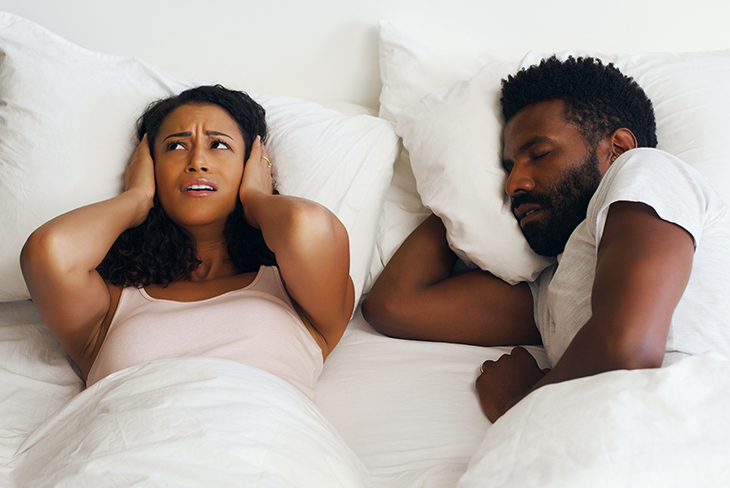When snoring keeps you awake at night

Snoring is common, but it’s not normal. Here’s why we snore and what can be done about it.
While snoring is commonly thought of as an annoying habit that can just be laughed off, it could actually be a sign of one or more health hazards – not just those received when your exhausted partner unleashes their frustration in the middle of the night, but also unhealthy lifestyle choices or underlying disease.
What causes a person to snore?
‘Snoring is caused by a blockage in the airway,’ explains Dr Ridwaan Essa, otorhinolaryngologist (ENT specialist) at Life Roseacres Hospital. ‘The airway includes the mouth, nose, back of the mouth, back of the nose and voice box. The blockage narrows the airway, resulting in air turbulence, which produces the snoring sound.’
Snoring in children is often as a result of large adenoids and tonsils; in adults the physical causes are poor tone or fat mass in the neck, which can cause a collapse in the airway.
Lifestyle factors that increase the chance of snoring, explains Dr Mark Richardson, ENT specialist at Life St James’ Hospital, include a lack of exercise that results in weight gain, smoking and drinking alcohol before sleeping – which decreases upper airway muscular tone. ‘The effects of a poor lifestyle will have their own impact on the cardiovascular system, which can aggravate snoring,’ Dr Richardson says.
Snoring and sleep apnoea
The World Health Organization (WHO) defines sleep apnoea as a clinical disorder that causes frequent pauses in breathing during sleep, usually accompanied by loud snoring. These pauses cut off the oxygen supply for a few seconds, which jolts the brain awake and reopens the airway. It can occur multiple times a night.
‘Someone suffering from sleep apnoea will recurrently have blood pressure and heart rate spikes at night. After many years, this can lead to high blood pressure and diabetes, and could progress to strokes and heart disease,’ says Dr Essa.
All patients with sleep apnoea snore, but not everyone who snores has sleep apnoea. ‘Sleep apnoea is a medical condition that needs treatment, but snoring can just be monitored,’ he adds.
How to recognise sleep apnoea
- Waking up more sleepy than usual or with a headache
- Daytime sleepiness – dozes off easily
- Poor memory or concentration
- Irritability or moodiness
- Partner mentions choking while the person is sleeping
Treatments and management
If you’re concerned about your snoring, an ENT specialist might suggest a nasopharyngolaryngoscopy – a long word for a medical procedure that uses a flexible fibre-optic endoscope to view any possible obstructions in the nasal passages. This can be done in the consulting room or under general anaesthetic. ‘Once the patient is examined thoroughly, we can provide a definitive diagnosis and management,’ says Dr Richardson.
‘A number of patients benefit from upper and lower gum-guard equivalents, which advance the lower jaw and tongue forward during sleep to decrease obstruction and increase airflow – however, lifestyle changes are the most important management tool for snoring,’ he advises.
So, more exercise, less alcohol and quitting smoking are all part of the recipe for a quiet night. Sleep tight!
The information is shared on condition that readers will make their own determination, including seeking advice from a healthcare professional. E&OE. Life Healthcare Group Ltd does not accept any responsibility for any loss or damage suffered by the reader as a result of the information provided.

